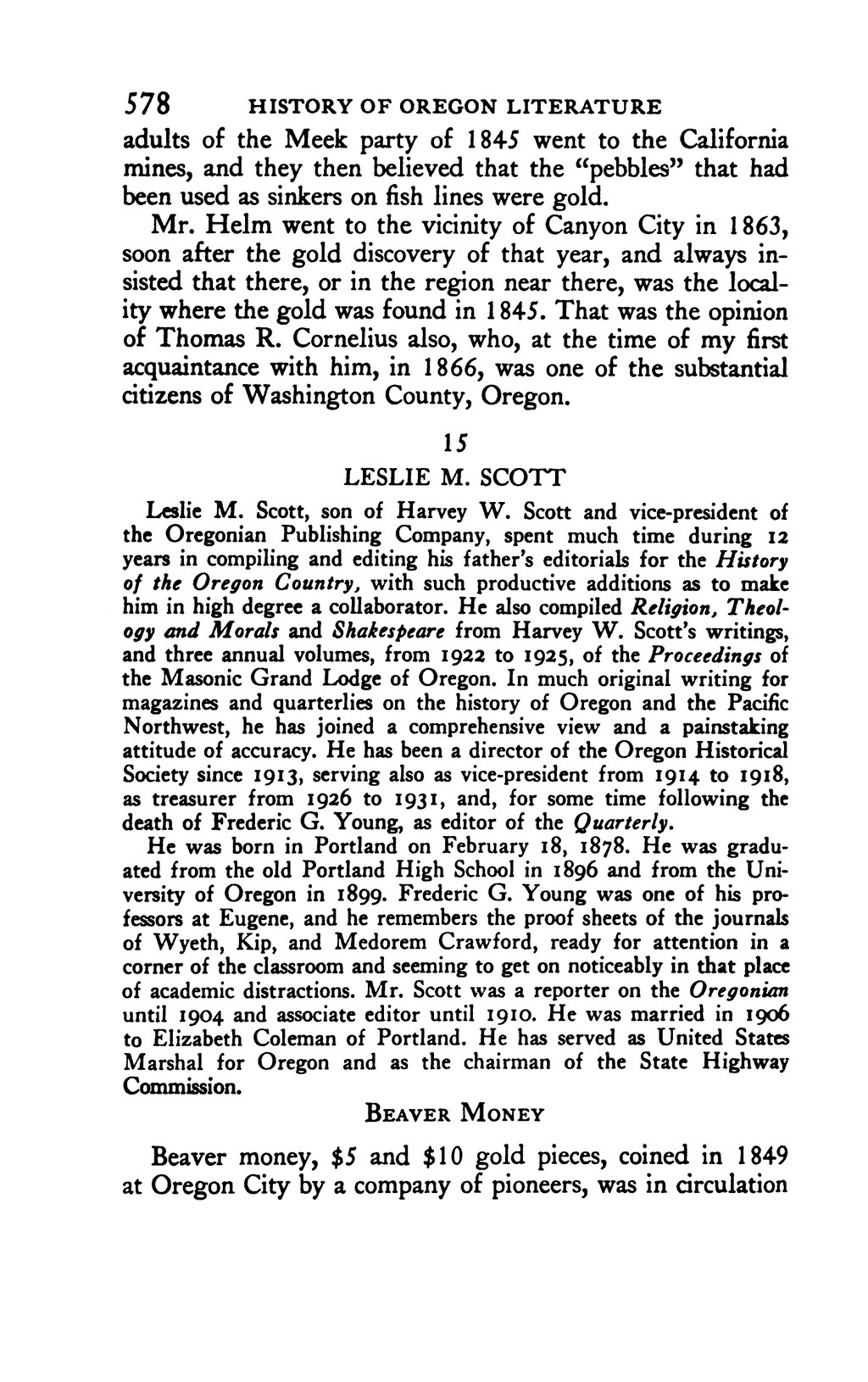adults of the Meek party of 1845 went to the California mines, and they then believed that the "pebbles" that had been used as sinkers on fish lines were gold.
Mr. Helm went to the vicinity of Canyon City in 1 863, soon after the gold discovery of that year, and always in sisted that there, or in the region near there, was the local ity where the gold was found in 1 845. That was the opinion of Thomas R. Cornelius also, who, at the time of my first acquaintance with him, in 1866, was one of the substantial citizens of Washington County, Oregon.
15 LESLIE M. SCOTT
Leslie M. Scott, son of Harvey W. Scott and vice-president of the Oregonian Publishing Company, spent much time during 12 years in compiling and editing his father's editorials for the History of the Oregon Country, with such productive additions as to make him in high degree a collaborator. He also compiled Religion, Theol ogy and Morals and Shakespeare from Harvey W. Scott's writings, and three annual volumes, from 1922 to 1925, of the Proceedings of the Masonic Grand Lodge of Oregon. In much original writing for magazines and quarterlies on the history of Oregon and the Pacific Northwest, he has joined a comprehensive view and a painstaking attitude of accuracy. He has been a director of the Oregon Historical Society since 1913, serving also as vice-president from 1914 to 1918, as treasurer from 1926 to 1931, and, for some time following the death of Frederic G. Young, as editor of the Quarterly.
He was born in Portland on February 18, 1878. He was gradu ated from the old Portland High School in 1896 and from the Uni versity of Oregon in 1899. Frederic G. Young was one of his pro fessors at Eugene, and he remembers the proof sheets of the journals of Wyeth, Kip, and Medorem Crawford, ready for attention in a corner of the classroom and seeming to get on noticeably in that place of academic distractions. Mr. Scott was a reporter on the Oregonian until 1904 and associate editor until 19 10. He was married in 1906 to Elizabeth Coleman of Portland. He has served as United States Marshal for Oregon and as the chairman of the State Highway Commission.
Beaver Money
Beaver money, $5 and $10 gold pieces, coined in 1849 at Oregon City by a company of pioneers, was in circulation
